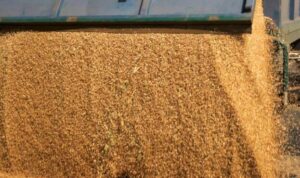
If necessary, Poland will impose a unilateral ban on imports of Ukrainian grain after September 15, while the transit of goods will be maintained, Agriculture Minister Robert Telusz told Polsat News at a press conference on Tuesday.
He denied media reports that a split in the coalition of countries banning Ukrainian grain imports had occurred and that the number of EU member states opposing Poland’s position on extending restrictive measures after September 15 had increased from 13 to 20.
“This is the first time I’ve heard that more countries are against it. I have talked to many ministers from the European Union about this. I see an understanding that we need to build a coalition. We have to build a mechanism. I am convinced that Romania is a member of the coalition,” Telusz was quoted as saying by the Polish publication farmer.pl.
He also said that next week he will hold talks with representatives of Slovakia to determine together “in which direction we will move.”
“At the moment, I have no doubt that there is a coalition,” Telusz assured.
The Polish minister emphasized that keeping the ban on the import of Ukrainian grain only until September 15 is “a political argument to further destabilize the situation in Poland.”
“We will not allow this,” he assured.
The Polish government wants this issue to be resolved “amicably in the European Union, so that there is no need to break down the door.”
“If it is necessary (…) to introduce unilateral bans, we will introduce them, because we are concerned about the interests of farmers (…), and there is no discussion on this topic,” Telusz stated.
Answering a question about possible risks of penalties being imposed on Poland if it violates the rules of the single market, the Minister said that “I don’t want to hear how we, the Poles, are being scared by fines (…)” and added that Poland “will pursue a tough policy in the interests of the Poles.”
Telusz said that Poland is in dialogue with Ukraine, Lithuania, and Latvia to transit grain through Poland.
“We are in dialogue with Ukraine, as well as with Lithuania and Latvia, to use their ports,” he said, and assured that the grain that leaves Poland does not return.
“If we are talking about the food security of Poland, the food security of Europe, then the grain must flow to Europe and must flow outside of Europe. We will help you on the way,” the head of the Polish Ministry of Agriculture said.
According to him, before the ban on the import of Ukrainian grain, about 114 thousand tons of grain entered Poland in transit, and in June – 260 thousand tons. At the same time, about 6 million tons of grain “left” Poland. Poland has about 3-4 million tons of grain left, “but this is a reserve that should always be there,” as the monthly demand for it is 2.5 million tons, the Polish Minister of Agriculture explained.
On June 5, the European Commission agreed to extend until September 15 the restrictions on exports of wheat, corn, rapeseed and sunflower from Ukraine to Bulgaria, Hungary, Poland, Romania and Slovakia. “The restrictions do not imply a ban on the transit of these goods through Bulgaria, Hungary, Poland, Romania and Slovakia,” reads the document signed by EC President Ursula von der Leyen.

Ukrainian clothing brand Solmar since February 2022 has expanded its network to 12 stores in Ukraine and entered Poland, in the nearest plans to expand the Ukrainian network by 10 more stores, business development director Tatyana Lakhtadyr told the agency “Interfax-Ukraine”.
“At the time of the full-scale invasion, the network had seven stores in Kiev, Vinnitsa, Khmelnitsky, Lviv and Zhitomir. Today the chain has added five more stores and three more stores will open within the next month: in Kiev’s Ocean Plaza and Lavina mall and in Veles mall in Ivano-Frankivsk. We are also preparing the opening of the first street-format store in Uzhgorod”, – said Lahtadyr.
Solmar, a Ukrainian basic closet brand with a Ukrainian team, traces its origins to Instagram. By the beginning of 2022, more than 60% of sales came from the online channel (website solmar.com.ua and Instagram page). The first “brick-and-mortar” (offline) stores were opened in July 2020 almost simultaneously in Khmelnytskyi and Kyiv.
“These were small stores of just over 30 square meters, which were supposed to serve more as showrooms for the assortment presented online. But almost immediately we realized that a different customer comes to the store than online. Offline stores became a full-fledged channel for attracting new customers and Solmar brand connoisseurs”, – said Lakhtadyr.
Now the company is working on expanding the assortment and actualization of the store format (about 100-150 square meters). Children’s assortment, perfumes have already been added to the basic women’s closet, and several positions of men’s collection are planned for the fall-winter season.
Lakhtadyr said that Solmar continues active development of offline network, in Ukraine in the coming year it is planned to open at least 10 locations.
“In addition, in July we opened our first store in Poland in Poznan (shopping center Posnania) and we are already finalizing negotiations on the second location. It is too early to talk about the first results, but sales from the site in Poland are already yielding results above our expectations. I think that next year will be the year to open a new country for Solmar”, – said Lahtadyr.
According to Opendatabot, TOV “SOLMAR” was registered in 2020, the size of the authorized capital of UAH 1.155 million, the ultimate beneficiary Olga Kostetskaya. Income for 2021 UAH 5 million 398.8 thousand, net profit of UAH 42.5 thousand.
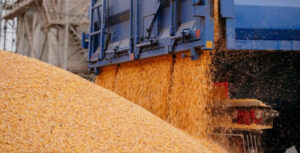
Transit of Ukrainian grain through Poland is steadily growing: if in February it was 114 thousand tons, in June it exceeded 260 thousand tons, Polish Minister of Agriculture and Rural Development Robert Telusz said after online talks on Wednesday with Ukrainian Minister of Agrarian Policy Mykola Solskiy.
“This is very good news for agrarians, because grain from Ukraine does not enter the Polish market,” the Polish minister was quoted as saying in a tweet and on the ministry’s website.
At the same time, he said he saw a chance for the European Commission to extend the decision to ban Ukrainian grain exports to Poland after September 15, blaming both those in power in the EU and the Polish opposition for trying to destabilize Poland.
“It is in our interest to protect the Polish farmer. That is why a clear statement was made by Prime Minister Morawiecki that Ukrainian grain will not enter Poland after September 15,” Telusz reiterated.
According to him, the Polish side wants the so-called “solidarity corridors” to work effectively, which would allow for efficient transportation of Ukrainian goods without harming the Polish agricultural sector.
A press release from the Polish ministry indicates that to this end Telusz proposed measures to facilitate the transit of Ukrainian grain to seaports in various EU countries, in which Solsky was interested, but no other details are available and the Ukrainian ministry has not officially commented on the talks.
The Polish Ministry of Agriculture said that the Ukrainian side will also present a draft of detailed solutions in the near future. “He (Solsky – IF-U) explained that Russian missile strikes on Ukraine’s port infrastructure have put Ukrainian exporters in a very difficult situation. Now they will have to organize grain exports via other routes,” the release said.
Telush informed about ongoing negotiations with Lithuania and Latvia on the use of their ports for grain exports from Ukraine. “These negotiations are going in the right direction,” the minister added.
According to him, Poland has managed to significantly increase grain exports through its four main ports this year. In particular, if in January it amounted to 299 thousand tons, in February – 539 thousand tons, in March – 628 thousand tons, in April – 704 thousand tons, in May – 882 thousand tons, and in June – almost 940 thousand tons.
Poland exported more than 4.5 million tons of crops in 4 months of this year, stated Telusz.
It is noted that the ministers also raised the issue of access of Polish poultry products and eggs to the Ukrainian market, and currently the veterinary services of both countries are working intensively to resolve this issue.
The Polish Ministry of Agriculture pointed out that Ukraine is an important partner of Poland in agri-food trade. In 2022, an increase in agricultural exports to the Ukrainian market by 16% to $945.3 million was recorded. The main export items were: cheese and cottage cheese, products used for animal feed, and coffee. In April 2023, exports of agricultural products to the Ukrainian market increased by more than 35% compared to the same period in 2022, the release added.
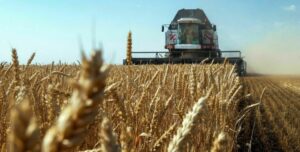
Agriculture and Rural Development Minister Robert Telusz has assured the Sejm that the ban on imports of Ukrainian grain to Poland will continue after September 15, polskieradio.pl reported.
“Prime Minister Mateusz Morawiecki and Polish Deputy Prime Minister Jaroslaw Kaczynski made it clear: Ukrainian grain will not enter Poland after September 15. We will protect Polish agriculture,” Telusz said.
In mid-September, the ban on imports of wheat, corn, sunflower seeds and rapeseed from Ukraine to Poland, Slovakia, Bulgaria, Romania and Hungary will expire.
Five of Ukraine’s neighboring countries are in favor of extending the ban at least until the end of the year.
Polish Prime Minister Mateusz Morawiecki said that Poland would maintain the existing ban even without the consent of the European Commission.
As reported, Ukrainian Prime Minister Denys Shmygal considers Poland’s intention to continue blocking the export of Ukrainian grain amid Russia’s aggression as “an unfriendly and populist step” that “will hit the world food security and Ukraine’s economy hard”. He called on the European Commission to ensure unimpeded export of Ukrainian food to the EU.
In her turn, First Deputy Prime Minister and Economics and Trade Minister Yuliya Sviridenko admitted that Ukraine might introduce mirror measures against some products from Poland.
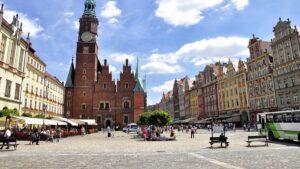
The number of residents in Poland has fallen by 130,000 since last June, one of the highest annual population declines in a decade, the Associated Press (AP) reported, citing a report by Poland’s Central Statistical Office.
“A preliminary report from the Central Statistical Office says there were about 130,000 fewer Poles in the EU country at the end of June than a year earlier. This is one of the highest population declines in Poland since 2010,” AP informs.
According to preliminary data, in the first half of this year recorded about 14 thousand fewer births compared to the same period in 2022. AP notes that such indicators are noted against the background of measures protecting the family and low unemployment, which in June amounted to about 5%.
There were also 34 more deaths than births for every 10,000 people in the first half of 2023. Last year this figure was 21.
Now there are about 37.7 million people in Poland, which is 800 thousand less than in 2010.
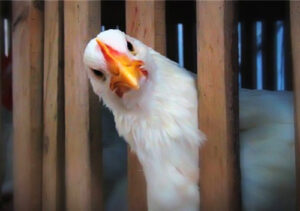
The Eastern Interregional Main Department of the State Service of Ukraine for Food Safety and Consumer Protection has announced the introduction of restrictions on imports of hatching eggs, poultry and poultry products from the Republic of Poland to Ukraine due to the registration of Newcastle disease in the country, the press service of the agency said.
According to the order of the Chief State Veterinary Inspector of Ukraine dated July 13, 2023, the ban does not apply to products that have been treated by a method that guarantees the destruction of the causative agent of this disease according to the requirements for the import (transfer) to the customs territory of Ukraine of food products of animal origin, feed, hay, straw, as well as by-products of animal origin and products of their processing, processing, approved by the order of the Ministry of Agrarian Policy and Food № 553 of November 16, 2018 year
Newcastle disease is known as pseudoplague of birds, or Asian plague – a contagious and fatal viral disease affecting all types of birds (chickens, pigeons, turkey, etc.). One of the most contagious poultry diseases in the world, caused by a virus of the Paramyxoviridae family, in which many birds die without showing any symptoms. Pseudorabies plague can cause death even in vaccinated poultry.
According to Polish media reports, the disease was detected for the first time in 50 years at a poultry farm in Bialystok district, where 43.41 thousand chickens are kept for slaughter.